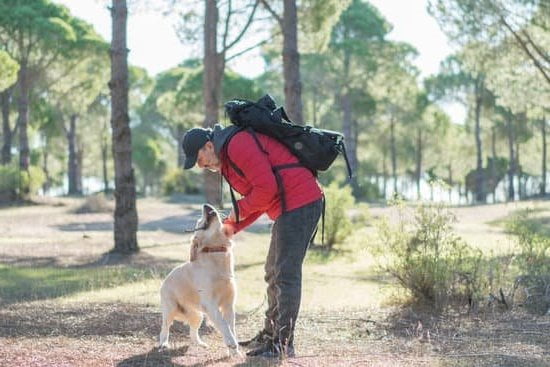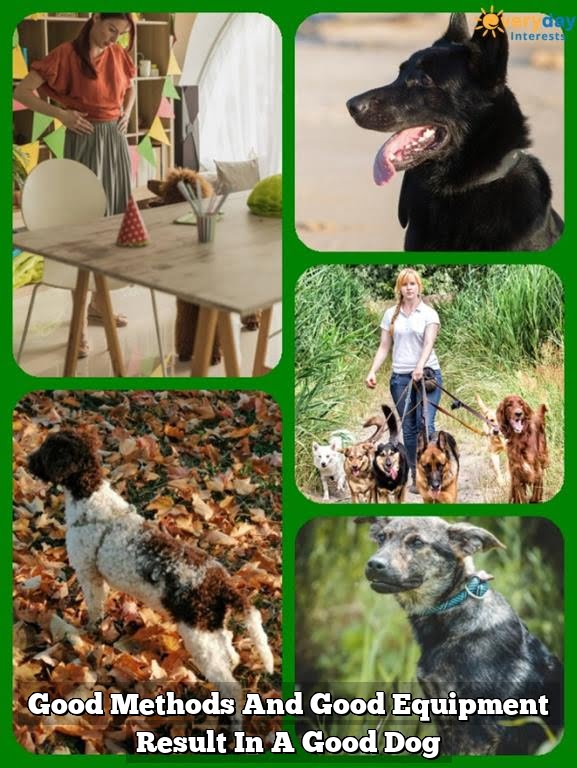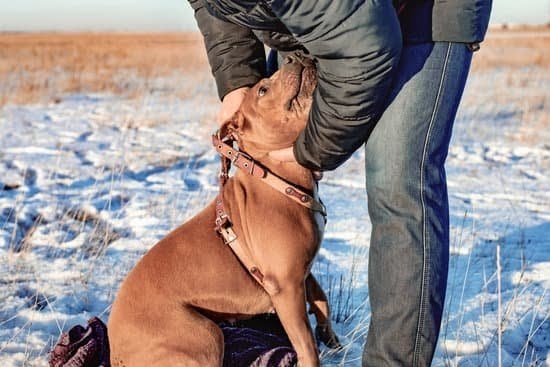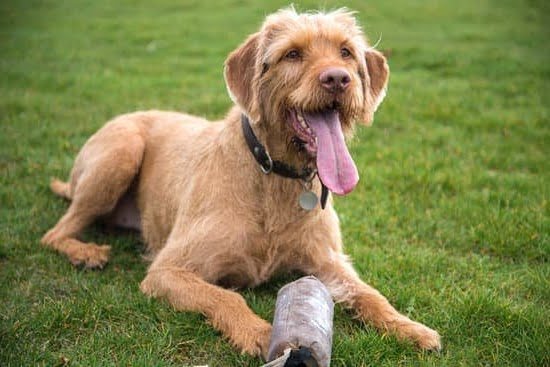Have you ever wondered, “Would I make a good guide dog trainer?” The role of a guide dog trainer is one that requires a unique set of skills, qualities, and dedication. In this article, we will delve into the responsibilities, training process, and personal reflection needed to excel in this profession. Whether you have a passion for working with animals or are simply considering a career change, exploring the world of guide dog training can open up new possibilities.
A good guide dog trainer possesses essential qualities such as compassion, patience, and understanding. It’s important to recognize that this profession goes beyond basic obedience training; it involves shaping the lives of both dogs and individuals who rely on these animals for independence and mobility. As we explore the training process from puppy to professionally trained guide dog, consider how your own characteristics align with the expectations of this role.
Assessing your own skills and qualities is crucial when contemplating a career as a guide dog trainer. Throughout this article, we will discuss the importance of empathy and communication in guide dog training, as well as opportunities for gaining experience through volunteering and shadowing. By understanding the challenges and rewards of the profession, you can determine if becoming a certified guide dog trainer is the right path for you.
The Qualities of a Good Guide Dog Trainer
Becoming a guide dog trainer requires a unique set of qualities and skills that not everyone possesses. The role of a guide dog trainer is crucial, as these professionals are responsible for preparing guide dogs to assist individuals with visual impairments in their daily lives. Compassion, patience, and understanding are three essential qualities that make a good guide dog trainer.
First and foremost, compassion is at the core of being an effective guide dog trainer. It is important to genuinely care for the well-being of both the dogs being trained and the individuals who will rely on them for assistance. This involves not only providing physical care for the dogs but also emotionally supporting them throughout their training process.
In addition to compassion, patience is another key quality for a guide dog trainer to possess. Training guide dogs is a time-consuming and sometimes challenging process. It requires a great deal of patience to work with each individual dog, understanding that they all have their own unique personalities and learning styles. Patience is also necessary when working with individuals with visual impairments as they learn to work with their new guide dogs.
Lastly, understanding is vital in the role of a guide dog trainer. Understanding the needs and capabilities of both the dogs and the individuals they will serve is essential for successful training outcomes. This includes understanding canine behavior, as well as having empathy and insight into the experiences of people living with visual impairments.
- Compassion
- Patience
- Understanding
The Training Process
The process of training a guide dog is a complex and multifaceted journey that involves various developmental stages for the young puppies to reach their full potential as professionally trained guide dogs. This process requires careful planning, consistent training, and the collaboration between guide dog trainers, puppy raisers, and other professionals in the field.
Puppy Development and Socialization
During the early stages of training, guide dog puppies undergo crucial socialization and basic obedience training. This phase focuses on exposing the puppies to different environments, people, and animals to help them develop into well-adjusted and confident dogs. They also learn fundamental skills such as walking on a leash, basic commands, and appropriate social behavior.
Advanced Obedience and Specialized Training
As the puppies mature, they move on to more advanced training tailored specifically for their future role as guide dogs. This phase includes teaching them specialized tasks such as navigating obstacles, responding to specific commands from their visually impaired handler, and practicing safe street crossings. The training becomes more intensive and customized to prepare them for real-world scenarios they will encounter when serving as guide dogs.
Evaluation and Graduation
Once the guide dog candidates have completed their training program, they undergo a series of evaluations to assess their readiness for working with visually impaired individuals. This includes testing their obedience, response to commands, and ability to handle challenging situations. Upon successfully passing these evaluations, the dogs are matched with their new handlers through reputable guide dog organizations before graduating as certified guide dogs.
Personal Reflection
Aspiring guide dog trainers must possess a unique set of skills and qualities to excel in this rewarding profession. Assessing your own abilities is crucial in determining whether you would make a good guide dog trainer. Here are some key qualities to consider:
- Compassion: Guide dog trainers must have a deep sense of empathy and understanding for individuals with visual impairments. The ability to connect with both the dogs and their future handlers is essential for success in this role.
- Patience: Training guide dogs is a complex and time-consuming process that requires immense patience. From basic obedience training to advanced mobility skills, the trainer must remain calm and patient throughout the entire training process.
- Understanding: A good guide dog trainer understands the unique needs and challenges faced by individuals with visual impairments. This understanding plays a crucial role in designing training programs tailored to the specific needs of each individual and their future guide dog.
In addition to these qualities, it’s important for prospective guide dog trainers to reflect on their own strengths and weaknesses. Effective communication, problem-solving skills, adaptability, and a genuine love for animals are also valuable traits that can contribute to success in this profession. Reflecting on these characteristics can help determine whether a career as a guide dog trainer is the right fit.
Ultimately, aspiring guide dog trainers should seek opportunities to volunteer at guide dog organizations or shadow experienced trainers to gain first-hand experience in the field. These experiences will provide invaluable insight into the day-to-day responsibilities of a guide dog trainer and offer an opportunity to further assess one’s suitability for this rewarding career.
The Importance of Empathy and Communication in Guide Dog Training
Guide dog training is not simply about teaching a dog commands and techniques, it also involves a strong emphasis on empathy and communication. When working with guide dogs, trainers must be able to understand the needs and emotions of their canine companions, as well as effectively communicate with them to establish trust and cooperation.
Empathy plays a crucial role in guide dog training, as it allows trainers to connect with the dogs on a deeper level and anticipate their reactions and behaviors. Understanding the unique experiences and challenges faced by both the dogs and their future owners is essential in providing effective training that meets the specific needs of each individual animal.
By putting themselves in the shoes (or paws) of the dogs, trainers can tailor their approach to ensure that they are providing the best possible guidance.
Communication is another vital aspect of guide dog training. Not only do trainers need to effectively communicate with the dogs, but they also need to be able to teach visually impaired individuals how to communicate with and handle their guide dogs.
Clear and consistent communication between the trainer, the dog, and its owner is crucial for establishing a strong relationship built on trust and understanding. Guide dog trainers must be adept at reading body language, using verbal cues, and employing positive reinforcement techniques to effectively convey their message to both the dogs and their future handlers.
Gaining Experience
Volunteering at a Guide Dog Training Center
One of the best ways to gain experience in guide dog training is to volunteer at a guide dog training center. This provides firsthand experience working with guide dogs, interacting with trainers, and understanding the daily responsibilities involved in the training process. Volunteering can also give you insight into the various stages of training, from socialization as puppies to advanced obedience and guide work.
Shadowing Professional Guide Dog Trainers
Another valuable opportunity for gaining experience is to shadow professional guide dog trainers. By observing experienced trainers in action, you can learn effective training techniques, communication skills, and methods for building a strong bond between the handler and the guide dog. Shadowing also allows you to ask questions, seek advice, and gain a deeper understanding of the profession.
Participating in Workshops and Seminars
Attending workshops and seminars related to guide dog training can also provide valuable experience and knowledge. These events often feature experts in the field who share their insights, strategies, and best practices for successful guide dog training. Additionally, networking with other aspiring trainers and established professionals can open doors to further learning opportunities and potential mentorships.
By taking advantage of volunteering and shadowing opportunities, along with participating in workshops and seminars, individuals interested in pursuing a career as a guide dog trainer can gain firsthand experience while building essential skills for success in this rewarding profession.
Training Programs and Certification
Becoming a certified guide dog trainer requires a combination of education, hands-on experience, and a genuine passion for working with animals. Many training programs and organizations offer specialized courses and certifications to help individuals develop the skills needed to excel in this field.
These programs typically cover topics such as canine behavior, positive reinforcement training techniques, disability awareness, and the specific tasks required of guide dogs. Additionally, prospective trainers may need to complete an apprenticeship or internship to gain practical experience under the guidance of experienced professionals.
One widely recognized certification program for guide dog trainers is offered by the International Guide Dog Federation (IGDF). This organization provides comprehensive training standards and sets guidelines for member schools that train guide dogs. Aspiring trainers can pursue IGDF-accredited courses to learn about the most current methods and best practices in guide dog training. Graduates of these programs may then seek certification through the IGDF by meeting specified training requirements and passing proficiency assessments.
In addition to formal certification programs, individuals interested in becoming guide dog trainers can benefit from seeking out volunteer opportunities with local guide dog organizations or shelters. Volunteering allows aspiring trainers to work closely with dogs, observe professional trainers at work, and gain valuable insights into the day-to-day responsibilities of the role.
By participating in shadowing opportunities and assisting with basic obedience training or puppy socialization classes, future guide dog trainers can begin building their skill set while making meaningful contributions to the well-being of service animals.
Challenges and Rewards of the Profession
Becoming a guide dog trainer is not without its challenges, but the rewards can be incredibly fulfilling. One of the main challenges is the emotional aspect of working with both dogs and visually impaired individuals. It requires a great deal of empathy and understanding to navigate this unique profession. Additionally, the physical demands of training and working with dogs on a daily basis can also be taxing.
On the other hand, the rewards of being a guide dog trainer are plentiful. The bond that forms between a guide dog and its handler is truly special, and being able to facilitate that connection is deeply gratifying. Witnessing the positive impact that a well-trained guide dog has on someone’s life can provide an immense sense of purpose and pride in one’s work.
Furthermore, there is also the opportunity for personal growth and learning in this profession. Developing communication skills, patience, and compassion are just some of the qualities that are honed through working as a guide dog trainer. Ultimately, while it may come with its fair share of challenges, for many individuals, the rewards far outweigh them.
| Challenges | Rewards |
|---|---|
| Emotional demands | Fulfilling bond between guide dog and handler |
| Physical demands | Positive impact on someone’s life |
| Opportunity for personal growth | Sense of purpose & pride in work |
Conclusion
In conclusion, the role of a guide dog trainer is one that requires a unique combination of qualities and skills. It demands compassion, patience, understanding, empathy, and strong communication abilities. It involves a rigorous training process, starting from the early stages of puppyhood to the professional certification of the guide dog.
Assessing your own skills and qualities is a crucial step in determining whether you would make a good guide dog trainer. It’s important to reflect on whether you possess the necessary attributes to excel in this profession, as well as to consider gaining experience through volunteering and shadowing opportunities. Additionally, pursuing training programs and certification can provide valuable knowledge and expertise in guide dog training.
While the profession comes with its challenges, such as the emotional investment and dedication required, it also offers rewarding experiences that come from witnessing the positive impact of guide dogs on their handlers’ lives. Ultimately, deciding whether you would make a good guide dog trainer involves understanding the demands and rewards of the profession and determining how well they align with your own capabilities and aspirations.
Frequently Asked Questions
What Qualities Do You Think Are Needed to Make a Good Guide Dog?
To make a good guide dog, certain qualities are essential. First and foremost, the dog should be obedient and highly trainable.
It is also crucial for a guide dog to be calm and well-behaved in various environments, as they will be assisting their owner in public places. In addition, intelligence, focus, and a strong bond with their trainer are all important qualities for a successful guide dog.
Can You Make 6 Figures as a Dog Trainer?
Yes, it is possible to make six figures as a dog trainer, but it largely depends on several factors such as experience, expertise, and reputation within the industry. Specializing in particular areas such as service dog training or behavior modification can lead to higher earning potential.
Additionally, establishing a successful business or working with high-profile clients can also contribute to reaching six figures as a dog trainer.
Why Is It So Expensive to Train a Guide Dog?
The expense of training a guide dog is primarily due to the extensive time and effort involved in the process. From breeding and raising the puppies to professional training by qualified instructors, there are substantial costs associated with every stage of development for a guide dog.
Furthermore, ongoing veterinary care, specialized equipment, and continuous support for both the dogs and their future owners contribute to the overall expense of training a guide dog.

Welcome to the blog! I am a professional dog trainer and have been working with dogs for many years. In this blog, I will be discussing various topics related to dog training, including tips, tricks, and advice. I hope you find this information helpful and informative. Thanks for reading!





